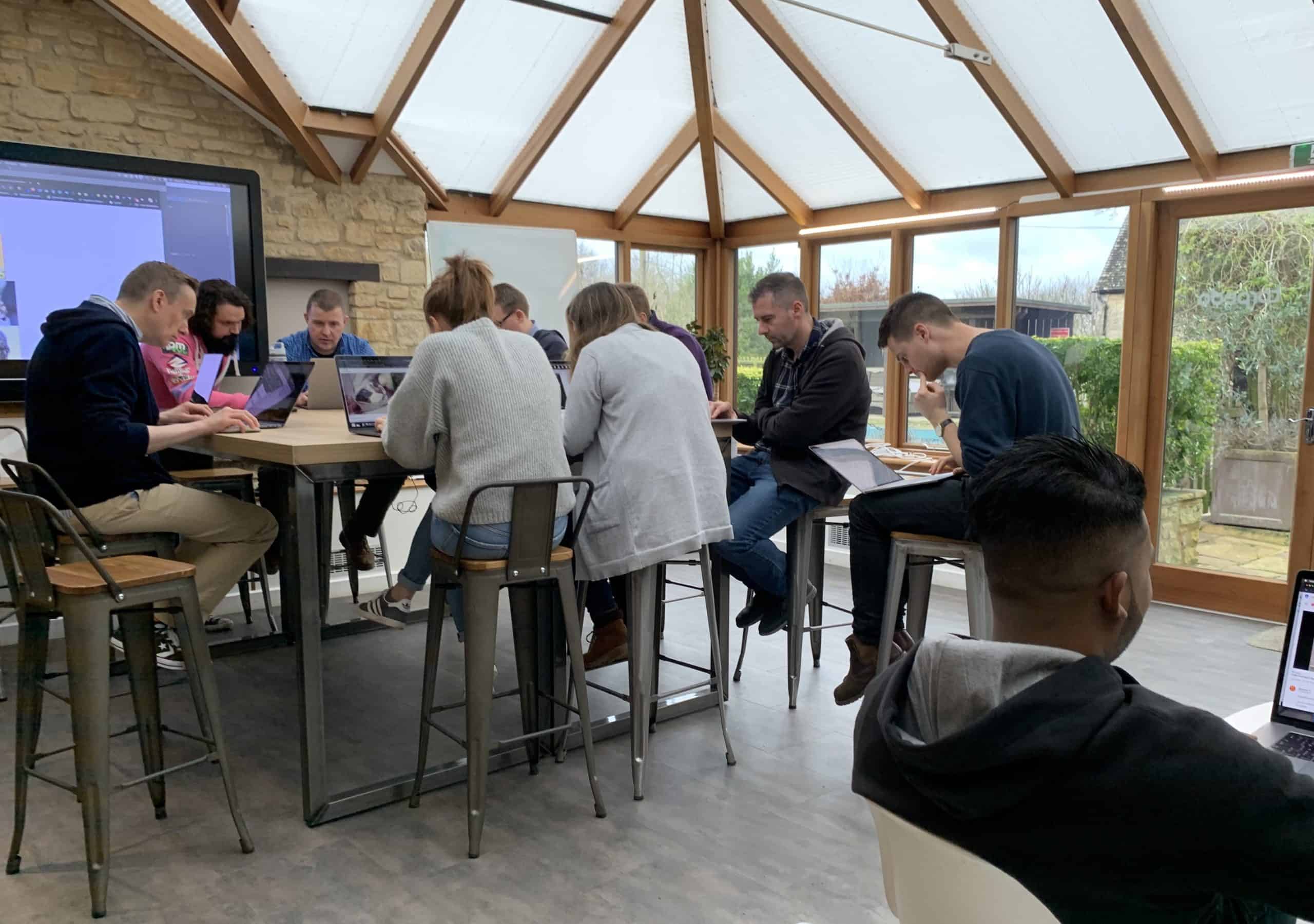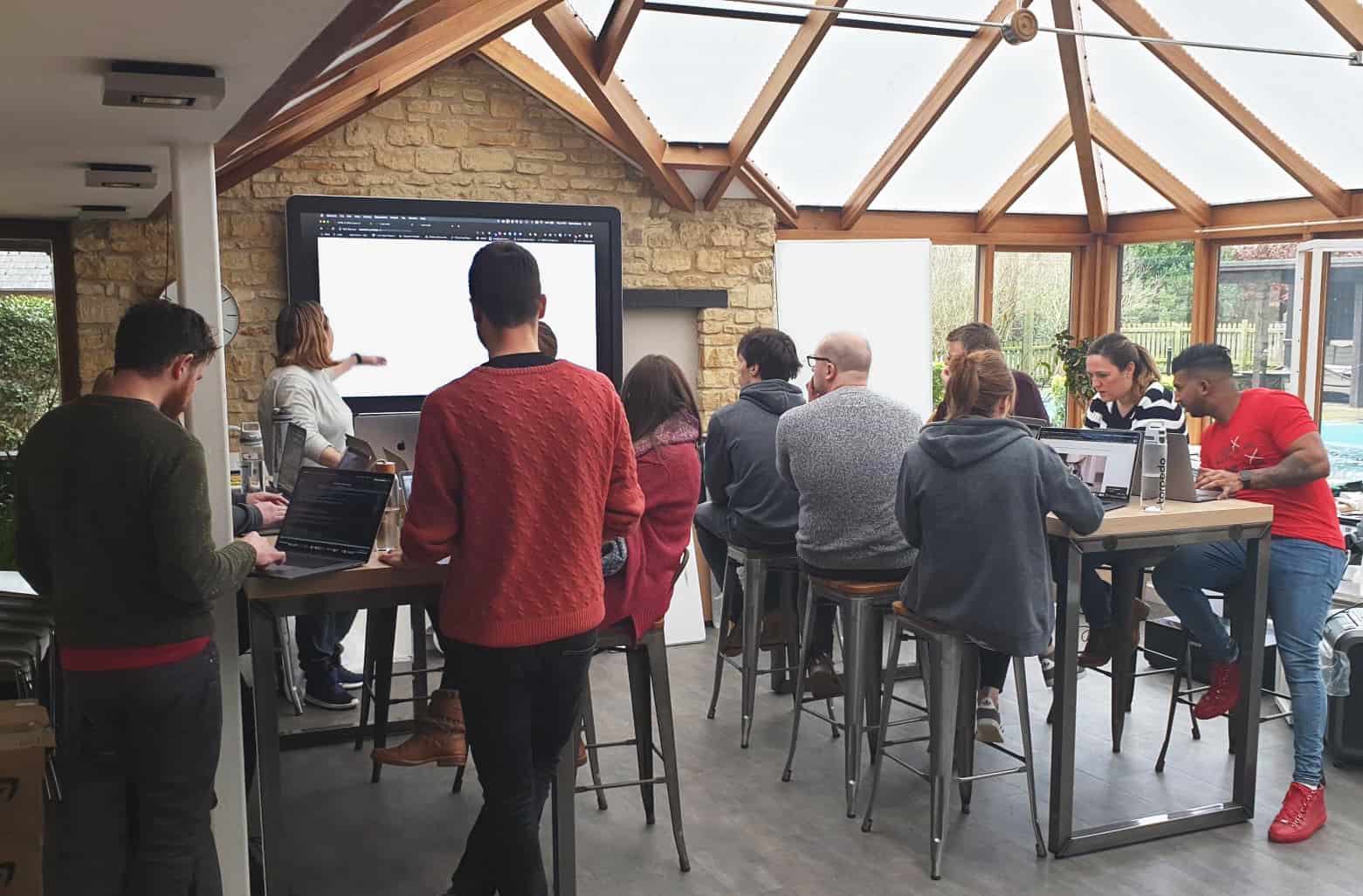Torpedo Code Club.
12th August 2020 • 5 mins
12th August 2020 • 5 mins

Coding is increasingly becoming one of the most sought-after skills in the world today.
In September 2013, coding and the relevant computer science skills that make a good programmer, such as logic, algorithms and analytics, were added to school curriculums in the UK across all age groups. Creative agency teams of the future will all have some level of ability in writing code and an understanding of the foundations behind websites and programming – whether they work in a development role, a creative role or account management role.
When we work on website and digital projects for clients it isn’t just our web engineers and development team that work on the project, it moves through every area of the agency – UX architects, UI designers, project managers, content strategists, copywriters, SEO. So, when we’re discussing site concepts and the implementation of ideas for new websites, the more knowledge everyone has, the more meaningful input everyone can have, and the better the output will be.
Back in December 2019 we came up with the idea of running our own ‘Torpedo Code Club’, to offer anyone in the agency who wished to learn how to code, starting from the very basics, the opportunity to learn.
We were inspired by the work of Codebar. Codebar is a great initiative that gives the opportunity for people from under-represented groups, like women, LGBTQ and ethnic groups, the opportunity to get into coding with a safe space to learn.
In the Summer of 2019 we had teamed up with Codebar to sponsor their Oxford meetups. Members of our development team went along to help the students with their coding tasks and giving a couple of talks on various coding subjects.
Seeing how well the setup of the attendees independently working through tasks with developers available to give guidance at the tricky parts worked at those sessions, we decided to use the same approach for our internal sessions.
Everyone learns at a different pace, so this approach means no one feels like they are holding the group back, and they are not put off from asking questions. Also, people who miss a session or two can jump right back in where they left off and not lose their own momentum by suddenly feeling left behind.
“ I knew very little about it and understood even less, so I jumped at the chance to give it a try. ”
Timing it to hopefully inspire anyone looking for a slightly different New Year’s resolution for 2020, we started our sessions in January. Running every other week for an hour, we had a great level of take up from the team when we presented the opportunity to them.
“ Coding felt like a bit of a dark art to me, I couldn’t get my head around how strings of text could make such cool experiences. ”
Everyone had their own reasons for wanting to learn, the advantage it would bring them for having a deeper level of understanding of the web projects they work on being the most evident one.
Account Director Rosie shared why it appealed to her, “Coding felt like a bit of a dark art to me, I couldn’t get my head around how strings of text could make such cool experiences. I had a very limited grasp of html but anything more complex just felt like magic! Digital is the future and I wanted to have a wider understanding of how it all works”.
But just wanting a clearer idea of what developers do on a day-to-day basis, and understanding their jobs a little better, was also a clear objective for many.
Art Director Chad explains what he had hoped to get out of learning code, “At very least, a better understanding of what goes into it. To understand a bit better what my dev colleagues are doing at work. To make me a more considered digital designer. And, in a best case scenario, actually be able to wrap my head around the basics of coding myself.”
“ I wanted to improve my understanding of web design code to a level where I could talk to developers and client web teams with a greater level of technical credibility. ”

They all try and play it cool round the office, but everyone has their inner geek just waiting for the opportunity to shine.
As the weeks passed, we had more people join in after hearing how much people were enjoying the sessions and that, surprisingly for many of them, they were not only understanding it, but managing to output their own webpages.
We also had some who quickly discovered their brains just weren’t wired for coding and that it wasn’t for them – but even the sessions they did had helped their understanding of what goes into a webpage.
“ It’s helped me even more than I expected … I also learnt basic coding tricks and about dev panels in web browsers that I use all the time in my job when harvesting info from websites. ”
Obviously, lockdown in March meant our office get togethers weren’t possible, but that didn’t mean we couldn’t continue to learn. Another advantage on the independent learning approach meant we could carry on, anyone who needed a bit of advice did so over a video call, sharing their screen so we could walk through what the issue was and get them moving in the right direction.
Encouragingly I’ve had many positive stories passed back to me in the last 6 months of colleagues who have found a way to use a skill, or technique, they’ve learnt in Code Club to speed up a job they were doing, just by being able to see a way of making it simpler using Dev Tools to inspect the code and play around with code in the browser.
The increased knowledge when speaking to our clients has been beneficial when, instead of having to go off and ask a developer to get the answer to a question, they now have the ability to answer the query themselves, which means clients can get an immediate answer.
Senior Account Manager Paul explains how it has already helped him shorten project timelines, “To make some quick styling changes to a live page in the inspect window means visual changes can be reviewed and signed-off live on a call screen share, saving time and avoiding lot’s of messages back and forth”.
“ I have an increased appreciation for why relatively small scope / feature changes could cause huge headaches for developers further down the line! ”
It has also been beneficial for the development team. A more in-depth understanding the requirements means others in the business know when more information about functionality is going to be required, or if the technicality isn’t going to be obvious from a design. When everyone is working in tune with each other, working together becomes easier and the work we produce is even better.
Please note: Images included in this blog were taken before lockdown.